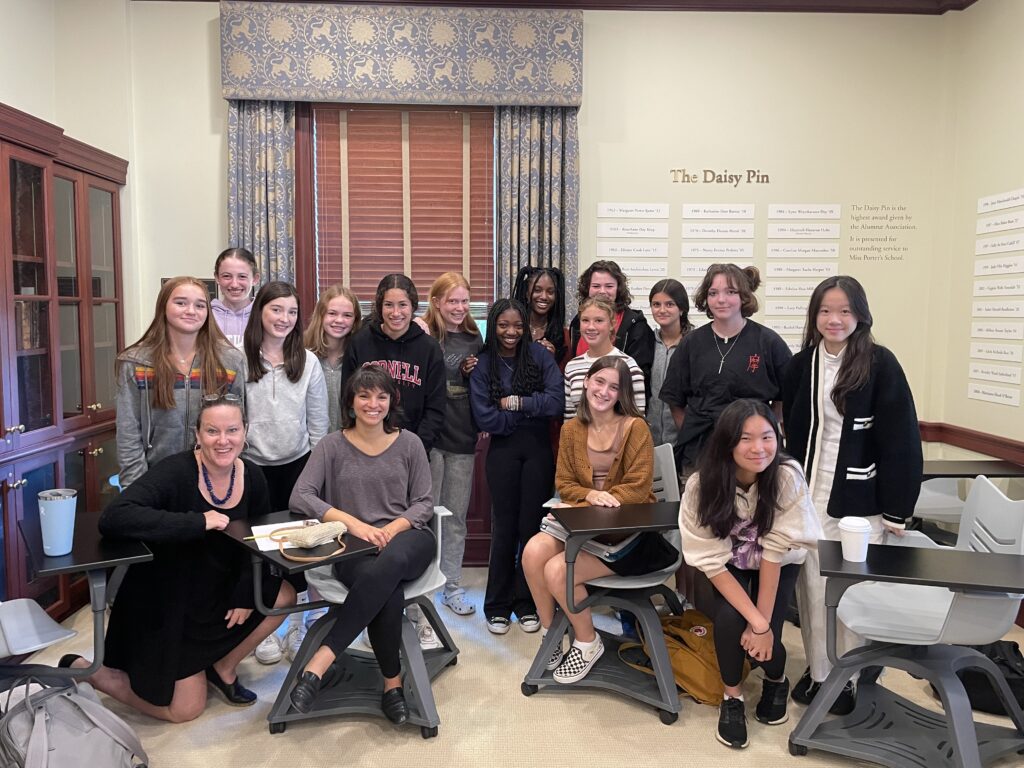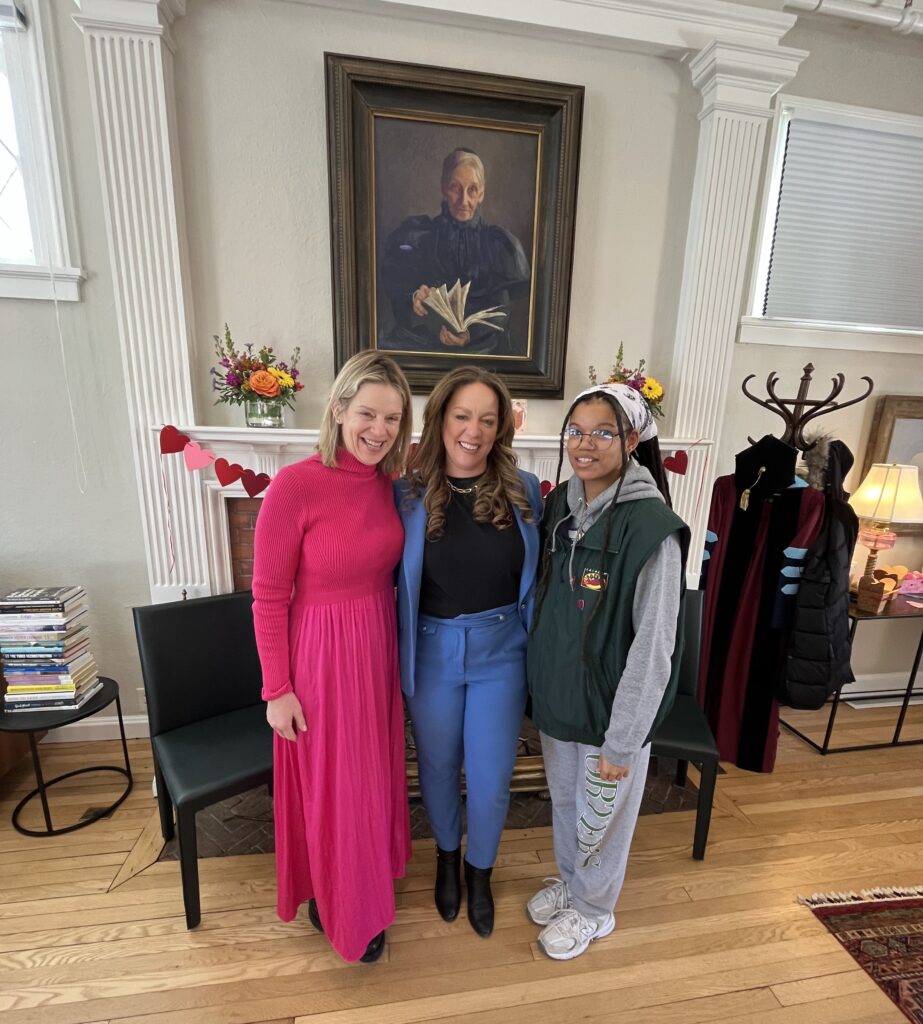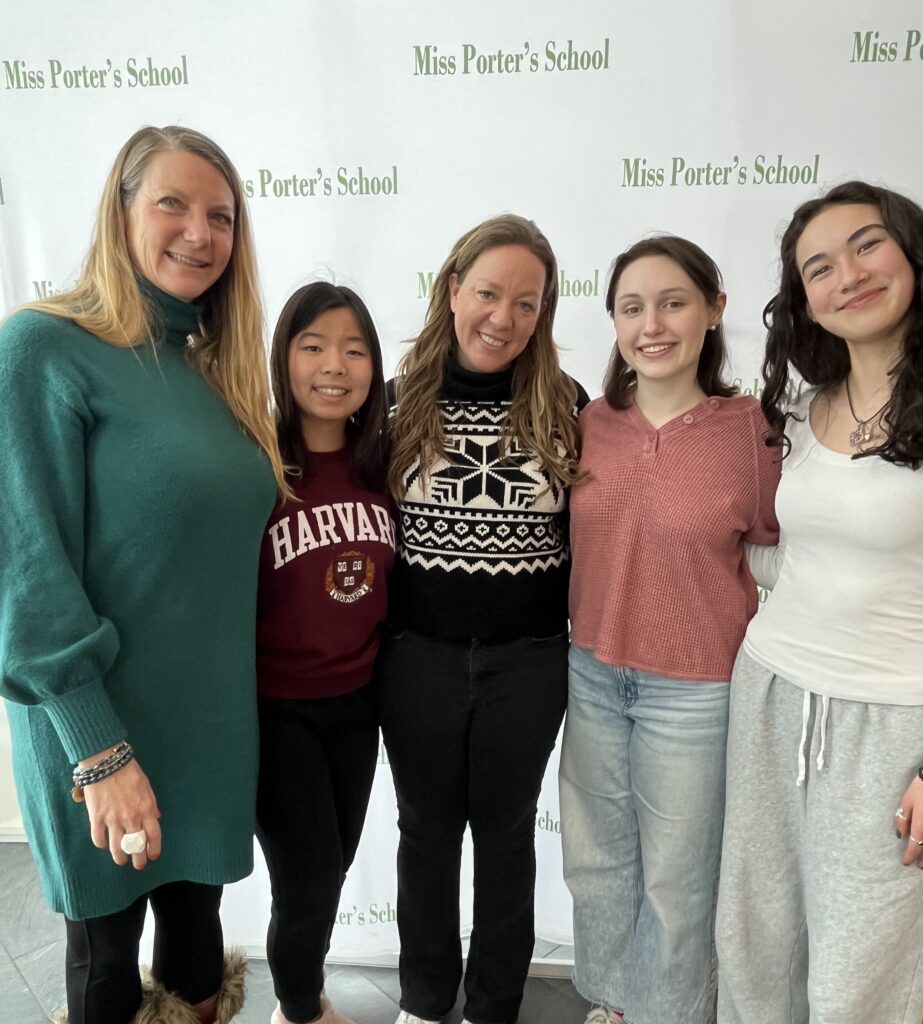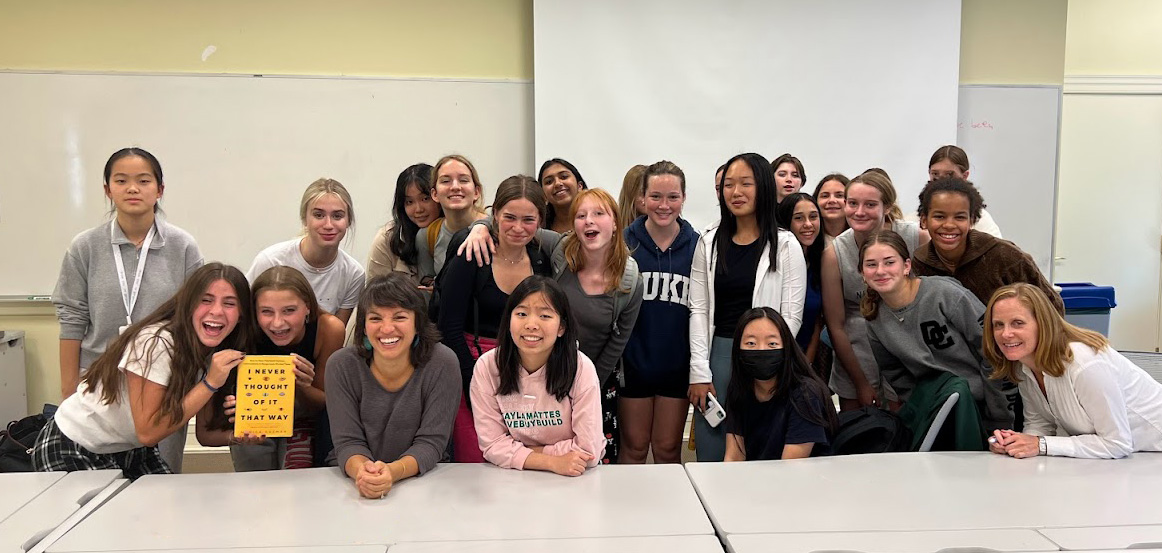By: Timothy Quinn
Chief Academic Officer and Dean of Faculty
Throughout this past winter, many of you have been following the news of protests and counter-protests on college campuses about a host of issues. While activism and political engagement are important, much of what we have seen lately underscores the deep political polarization that now exists in the United States. It also throws into stark relief our current inability to engage in the type of meaningful dialogue that might lead to understanding rather than vilification and further strife.
We at Miss Porter’s School are attempting to head off that divisiveness by opening the minds of the emerging generation of college students and activists. It begins in ninth grade, in the Introduction to Inquiry class, where Mónica Guzmán’s “I Never Thought of It That Way: How to Have Fearlessly Curious Conversations in Dangerously Divided Times” is the central text.

When Ms. Guzmán came to speak to the entire student body, she encouraged our community to listen to, attempt to understand, and — if possible — find common ground with those with whom we disagree.
Last month, we were visited by Andrea Hailey, MPS class of ’99. She is the CEO of Vote.org, the largest nonprofit, nonpartisan voting registration and get-out-the-vote technology platform in America. Ms. Hailey, a Democrat who happens to be married to a Republican, encouraged us to engage openly in the political process and to fight for a system in which all voices are heard — no matter what perspective they represent.


Despite these efforts, our students still report that they don’t always feel comfortable engaging in open dialogue about controversial issues, often out of fear of being judged harshly by peers for expressing a view not considered appropriate by the majority. The current war in the Middle East has undoubtedly exacerbated this, and there is concern that the coming presidential election will only deepen divisions and make it even more challenging to have conversations about important issues.
This past winter, I shared the much-circulated Los Angeles Times op-ed “The Closing of the Teenage Mind is Almost Complete” by Zach Gottlieb with our students. In response, some of them reached out to me for help addressing the lack of open dialogue on campus. In writing, one student asked, specifically about the war between Israel and Hamas, if it “would be possible to have a forum for the whole school with information, resources, and just an open, calm conversation about what is going on?”
While it took some time and careful scaffolding, I am pleased to report that we have since held two community conversations on the topic, one in a classroom and one in my living room by the fireplace. Fifteen to twenty students and faculty members attended each session and asked questions, listened to one another, and ultimately learned. I am sure there was still some hesitation in asking or saying certain things. Still, by asserting some norms, such as assuming the best intentions of all participants, searching for shared values that underlie different opinions, and approaching opposing views with curiosity, we were able to have a respectful and engaging conversation. This is just a start.
As a nation, it’s okay to be divided on issues that we view differently, so long as we are united in the search for truth, understanding, and justice, even if we disagree on how to get there. Getting there starts with modeling this in our school communities, where the next generation of citizens is being created.
For those who are worried that a call to listen to opposing views and for open dialogue simply gives voice to offensive or even hate speech that should be suppressed, I say this: the best way to combat an abhorrent idea is not to keep it hidden, but to expose it to scrutiny. Further, free speech is a tool for the marginalized and oppressed; there is no social change without it, and therefore, we must be careful about engaging in any restrictions on speech. Of course, I could be wrong on this point, and if you disagree, I’d be happy to listen to you and consider your perspective!

